Climate change: Tidal energy projects ignored, say supporters
- Published
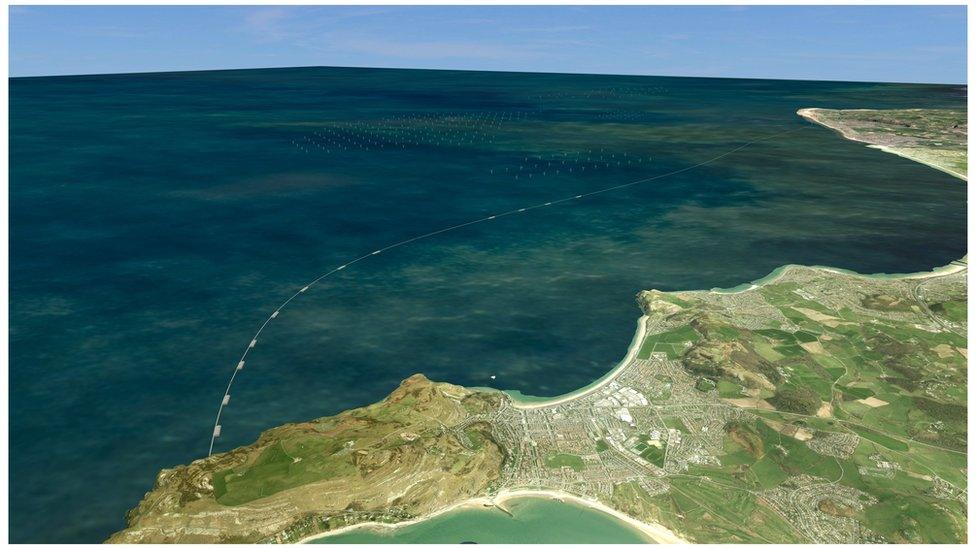
North Wales Tidal Energy has drawn up plans for a 19-mile, 2.3GW barrage, which would cost £7bn
Supporters of tidal energy projects say they are "deeply frustrated" that their plans to tackle climate change are being "ignored" by the UK government.
Tidal technology could produce between 5% and 10% of the UK's electricity needs, according to the Tidal Range Alliance (TRA).
A privately-funded plan for Swansea Bay was announced this week, but the TRA wants state support for large schemes.
The UK government said plans must show "strong evidence" of value for money.
A strategy to achieve net-zero carbon, published last week, did not mention tidal range energy, external.
Energy schemes in Wales which would produce more than 350MW require consent from the UK government.
North Wales Tidal Energy's £7bn plans for a 2.3GW barrage stretching 19 miles (31km) from Prestatyn in Denbighshire, to Llandudno in Conwy, would fall into this category.
Its chairman Henry Dixon is also chairman of the TRA, which works as a UK industry body.
Mr Dixon said the north Wales project had "stalled".

Henry Dixon is calling for UK government support for large schemes
"Like many other developers of tidal range we've had absolutely no support from government and this is something we really don't understand when we have the current energy crisis," he said.
"In the UK, we have a unique resource - potentially 5% to 10% of the electricity in the UK could be generated from the tide - and we're ignored."
In 2017, a government-commissioned review by former energy minister Charles Hendry backed plans for a pathfinder lagoon in Swansea Bay, saying it should be viewed as a "no-regrets policy".
But a year later, the UK government said it was not value for money.
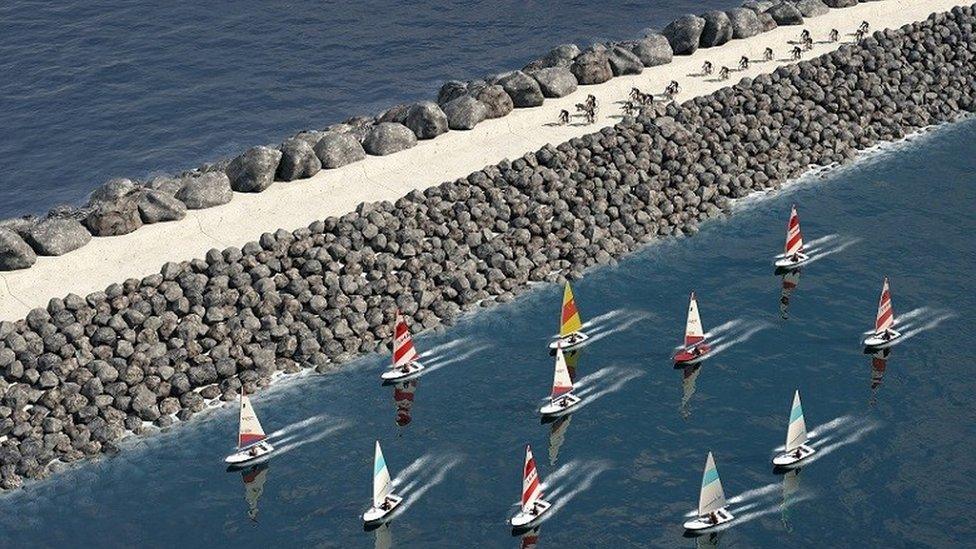
The ill-fated Swansea tidal lagoon project was scrapped after the UK government said it was not value for money
The TRA said improvements in technology meant previous assessments were "no longer accurate", and has called on the UK government to give £20m to conduct a new independent assessment.
It claimed the schemes could offer the same amount of energy as nuclear, were cheaper to build and have a much longer lifespan of 120 years.
In last week's strategy, the UK government announced its £120m Future Nuclear Enabling Fund to develop small modular reactors.
"Other industries have had significant amounts of money, or have that money," said Mr Dixon.
"Look at wind farm energy or nuclear energy, they're still getting grants."
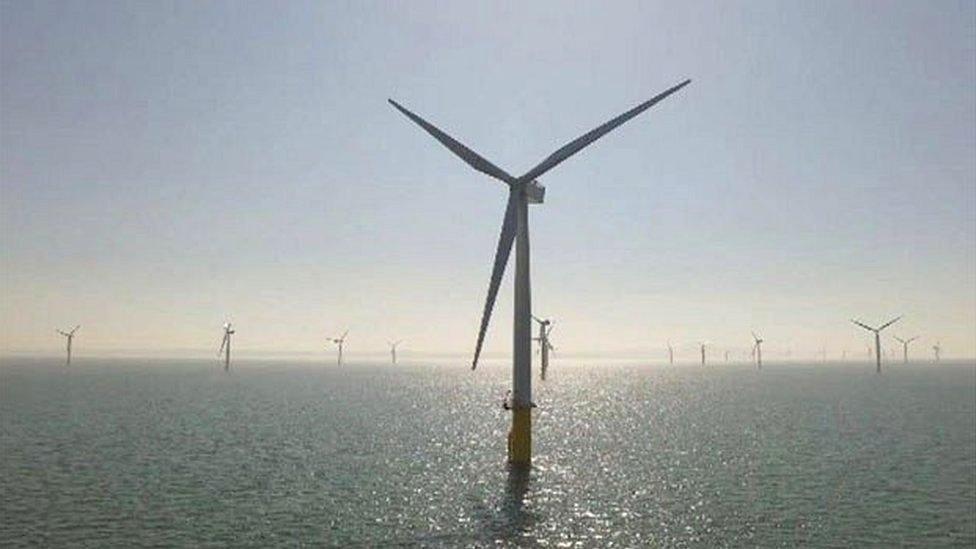
Other forms of renewable energy, such as offshore wind, get more money than tidal, Henry Dixon says
With COP26 approaching, an energy crisis and rising sea levels, Mr Dixon said "the time is now".
"All we're asking for is a small amount of funding to prove the science, prove the methodologies and show that this sort of scheme can really make a difference," he said.
Jay Sheppard from Marine Energy Wales, which acts as a body for the marine sector, said he shared the frustration of colleagues in the sector: "Our industry is poised to deliver reliable, clean energy power generation.
"But in order to get over the line we need that level of support and investment from the UK government and at the moment that's not forthcoming."
'An important role'
The Welsh government has power over energy schemes up to 350MW, and will soon launch a Tidal Lagoon Challenge to determine the appetite for developing proposals, potentially with its financial backing.
A spokesman said: "As the Hendry Review concluded, tidal lagoons have an important role to play in energy generation.
"After extensive conversations with stakeholders and testing of the existing market, the Welsh government is developing a broad, innovative and collaborative proposal which gives us the best possibility of developing and testing tidal lagoon energy generation in Welsh waters."
The UK government said: "Our coastline and the power of the seas around us offers huge potential for clean renewable energy and the UK government remains open to considering well-developed proposals for harnessing UK tidal range energy.
"In order to compete with other low-carbon technologies, a tidal range scheme will need to demonstrate strong evidence of value for taxpayer money, economic benefits, energy saving and environmental impact mitigation."
- Published25 October 2021
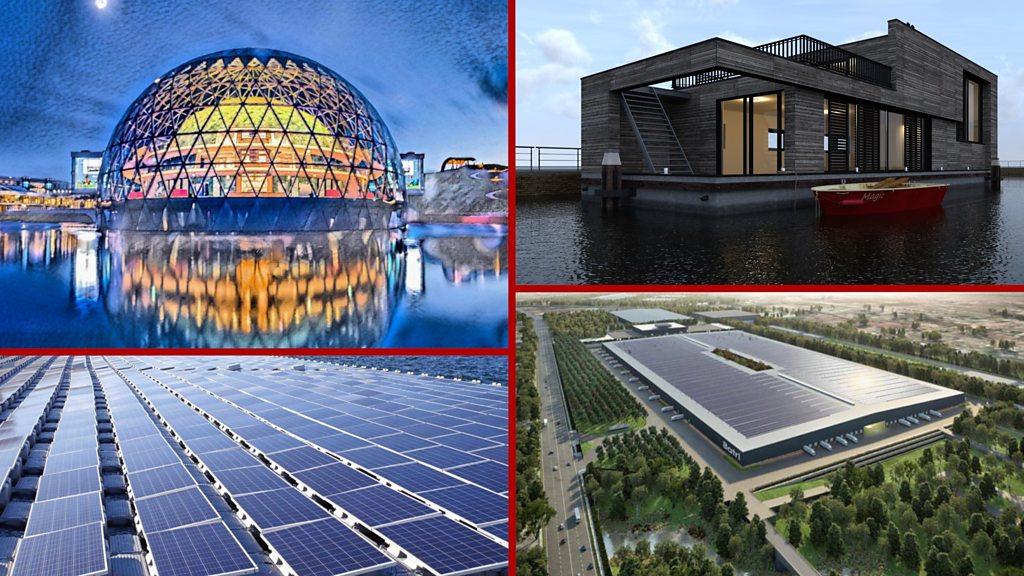
- Published24 June 2021

- Published19 October 2021
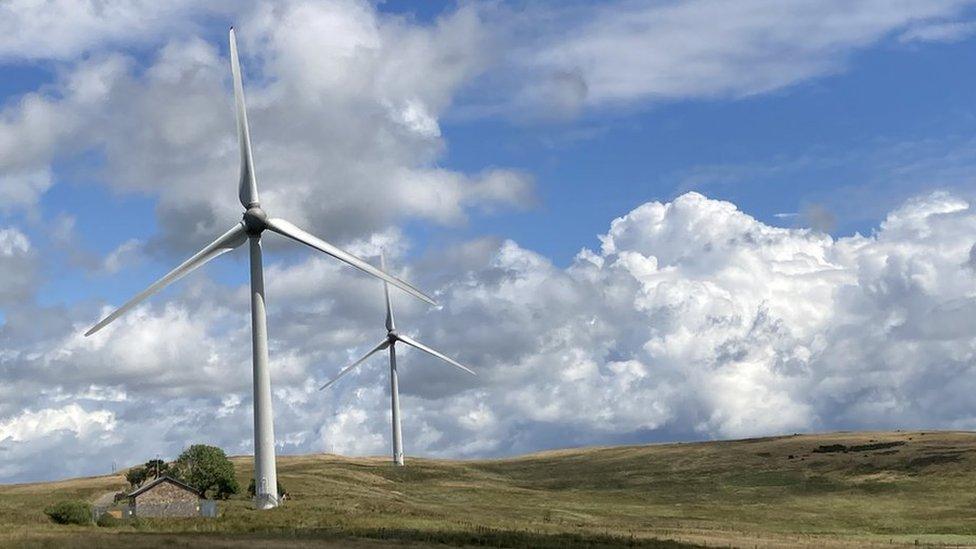
- Published19 January 2021
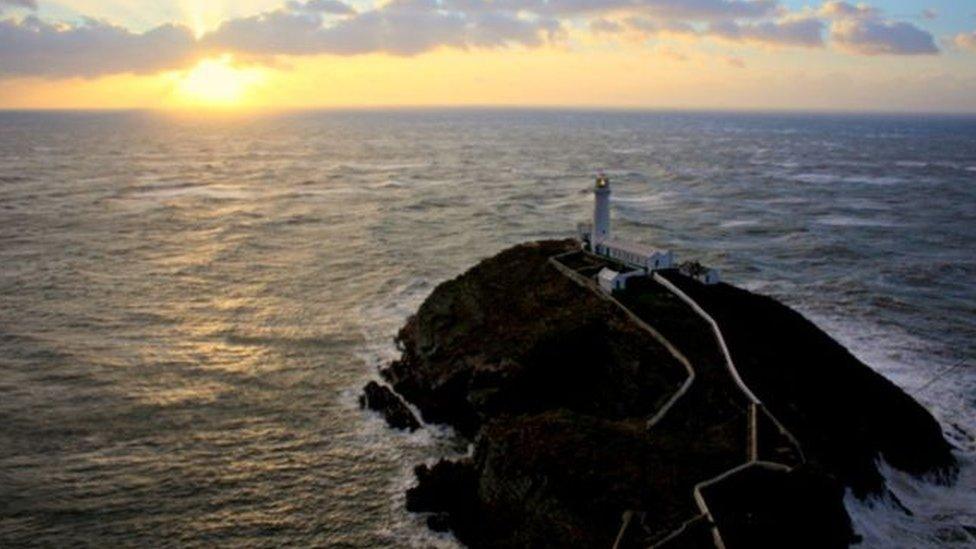
- Published15 April 2021

- Published25 June 2018
